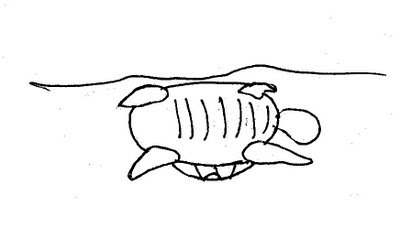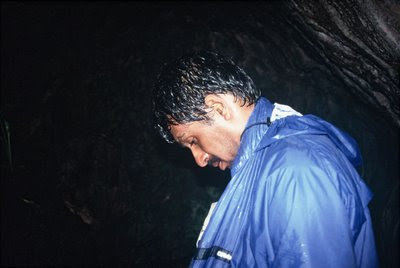Pasted below is the list of contents and editorial from the new issue of the PA Update - Vol XV, No. 2, April 2009 (No. 78).
If you want to receive the details of any of the stories below or want to receive the entire Update as an email attachment do let me know. Also please do forward to other interested individuals and networks
Thanks
Pankaj Sekhsaria
(Editor, PA Update)
For Kalpavriksh
---
News and Information from protected areas in India and South Asia
Vol. XV No. 2
April 2009 (No.78)
EDITORIAL
Who will police the enforcement agencies?
NEWS FROM INDIAN STATES
ANDHRA PRADESH
Contour +3 fixed as boundary of Kolleru lake WLS
ARUNACHAL PRADESH
Conditions diluted for project that submerges part of Tale Valley WLS
ASSAM
Earth cutting continues at Deepor Beel WLS
 MLAs enter Kaziranga NP illegally; attack forest staff
MLAs enter Kaziranga NP illegally; attack forest staffKaziranga rhino poachers bribed police official, villagers

Nine tiger deaths in Kaziranga NP in 3 months
Kaziranga receives funds from Project Tiger
Kaziranga NP estimated to have 16 tigers per 100 sq. kms
Erosion threat to parts of Manas NP
GUJARAT
Dolphins, sea turtles killed in dynamite explosion in Gulf of Kutch MNP

Fire over 300 hectares of Gir
HARYANA
Area within five km radius of Sultanpur NP proposed as Eco-Sensitive Zone
HIMACHAL PRADESH
Over one lakh birds counted in Pong Dam WLS this season
Forest official caught poaching in Pong Dam WLS; now absconding
Protests against Dhauladhar WLS
JAMMU & KASHMIR
Radio collar for Asiatic black bear in Dachigam
Eight lakh migratory birds visit Kashmir
State submits annual plan under Project Snow Leopard
KARNATAKA
Study: Tiger population in Karnataka healthy and stable

Elephants, leopard found in areas adjoining Bannerghata NP
KERALA
Proposal for relocation of human settlements from Wayanad WLS
MADHYA PRADESH
Two tigresses, one each from Kanha and Bandavgarh TRs, moved to Panna TR
Six gharial deaths reported from National Chambal WLS
MAHARASHTRA
Deer from Powai park released in Tungareshwar WLS
Two tiger deaths in Tadoba Andhari TR in February
SC will not interfere in encroachment removal from Sanjay Gandhi NP
MANIPUR
Fire destroys over 60% of Keibul Lamjao NP; many Sangai feared dead
 ORISSA
ORISSA1572 crocodiles counted in Bhitarkanika NP
Huge turtle mortality in Gahirmatha
 RAJASTHAN
RAJASTHANAnother tigress shifted to Sariska from Ranthambore
 Planning Commission releases Rs. 56 crore for water pipeline for Keoladeo NP
Planning Commission releases Rs. 56 crore for water pipeline for Keoladeo NPONGC plans for oil exploration in Desert NP hits a roadblock
UTTARAKHAND
State-of-the art technology to fight fires in Mussoorie Forest Division
Electric fences to prevent Rajaji NP elephants from entering villages
Rapid Action Team to protect tigers in Corbett NP
'Best Maintained Tourist Friendly Park' award for Corbett NP for 2007-08
WEST BENGAL
Invasive species threat to Sunderbans mangroves

NATIONAL NEWS FROM INDIA
Revival of National Coral Reef Research Institute mooted
No PA vehicles or staff for election duty
Major fires in the Nilgiri Biosphere Reserve
Special Tiger Protection Force in the offing
Pakshi Shree award for Dr. Ramana Athreya
Delhi High Court comes down heavily on MoEF and the NEAA
Workshop held on Social dimensions of Marine Protected Area implementation in India
70 birds in Chilika satellite tagged for study on Avian Influenza
WCCB launches website
SOUTH ASIA
NEPAL
14 gharials radio-tagged
INTERNATIONAL NEWS
Ninth COP meeting to Convention on the Conservation of Migratory Species held
OPPORTUNITIES
Summer internship in Forest Canopy Research
UPCOMING
Symposium on Decentralization, Power and Tenure Rights of Forest-Dependent People
International Workshop on Preserving Mangrove Ecosystem Services
CSE announces one-month course on environmental management
World Ocean Conference 2009
International Course on ‘Education as a tool for species conservation with a focus on the tiger in India’
5th International Canopy Conference
---
EDITORIAL
WHO WILL POLICE THE ENFORCEMENT AGENCIES?
There has been a clutch of stories in recent issues of the PA Update (including this one) that raise uncomfortable questions about the role of government agencies like the Forest Department (FD) and the Police. In Himachal Pradesh, for instance, a beat officer was alleged to have hunted birds in the Pong Dam Wildlife Sanctuary while in the Kaziranga National Park, arrested rhino poachers said that they had bribed a police official so that they could continue with their activities.
It might be argued that these are isolated events or then, just the behaviour of deviant individuals who cannot be stopped from abusing the power that the state vests in them and that the problem, therefore, does not necessarily lie in the system itself.
The reality, as we know, is much more complex than that. There are many in the field who will argue that the involvement of enforcement agencies, be it the Police or the FD, in malafide and corrupt practices like those mentioned above are much more common than we are willing to accept. Importantly, developments like this need to be seen in the context of loud and regular demands of more and better policing, more enforcement, more arms and more powers to enforcement agencies for protecting our wildlife. For those amongst us who believe that a move towards a police state or even a more policed state has the solutions to our problems this should come as a sobering softener. And one is not even getting into the innumerable cases of police excesses and human right violations that litter our landscape today.
The February 2009 issue of the PA Update, for instance, reported the acquittal of 14 fishermen who were arrested in 2006 for trespassing the boundaries of the Gahirmatha Marine Sanctuary. The Orissa Forest Department (FD) had claimed in January 2006 that the fishermen were Bangladesh nationals, that they were fishing illegally in the waters of the sanctuary and that they had attacked patrolling staff. In the exchange of fire one of the intruders was killed and subsequently 14 others were also arrested. Enquiries and legal proceedings that followed revealed that the fishermen, firstly, were not Bangladeshi but residents of Kakdweep from West Bengal and that indeed they were not guilty at all. Three years later the local court pronounced them innocent and all those arrested were acquitted.
There are many questions that inevitably arise. Was it the failure of the Police and the FD to convince the court, or is the acquittal symptomatic of the problems with our judicial system? More fundamentally, were the accused really guilty of trespassing in the first place? How does one explaining the killing of one of the fishermen? Was the entire operation a frame-up by the enforcement agencies?
We also reported last time of a rather bizarre development in Madhya Pradesh where the Forest Department and the Police are accusing each other of neglecting their duties of tiger protection in the Kanha Tiger Reserve. In a letter to the National Tiger Conservation Authority in December 2008, the Kanha Director listed a number of concerns related to the working of the police: interference in the booking of forest rest houses inside the tiger reserve; not providing information about investigations into tiger poaching incidents; and even that the police seemed more interested in getting rewards for skins seized from poachers. He also expressed apprehension that informers used by the police to fight naxalism in the region might actually be directly involved in cases of poaching.
There are many other cases where NGOs or vigilance agencies within the government have exposed cases of serious negligence and corruption in the FD. The culpability of the FD in hiding the truth about tiger numbers in Sariska and Panna TRs till it was no longer possible to hide it is also well known.
Larger and very important issues arise from all this. Can conservation succeed if the agencies responsible for it fail in such a manner? How realistic is it in a situation like this to expect local communities to trust enforcement agencies, leave alone co-operate with them? Is the larger wildlife conservation community's overarching faith and trust in the apparatus of the state fully justified?
This is not a call for doing away with enforcement or the agencies themselves, but to remind ourselves that policing and force can only be one component of a bouquet of steps that are taken to deal with a problem. Lack of transparency or accountability has become the hallmark of the operations of our agencies and this is a systemic flaw that needs immediate attention. Agencies with power have to operate with additional responsibility, both, to avoid misuse and also to ensure that the citizens maintain their faith. The edifice of conservation can only be built on a foundation of mutual trust and respect and we don't seem anywhere close to reaching it.
---
PROTECTED AREA UPDATE
Vol. XV, No. 2, April 2009 (No. 78)
EDITOR: Pankaj Sekhsaria
EDITORIAL ASSISTANCE: Wrutuja Pardeshi
ILLUSTRATIONS: Madhuvanti Anantharajan
Produced by: Kalpavriksh
Ideas, comments, news and information may please be sent to the editorial address:
KALPAVRIKSH, Apartment 5, Shri Dutta Krupa, 908 Deccan Gymkhana, Pune 411004, Maharashtra, India. Tel/Fax: 020 – 25654239.
Email: psekhsaria@gmail.com
Website: www.kalpavriksh.org
Production of PA Update 78 has been supported by Foundation for Ecological Security (FES), Anand.












 http://himalmag.com/
http://himalmag.com/
